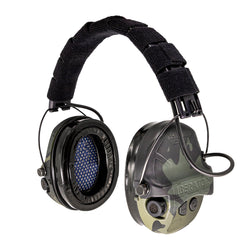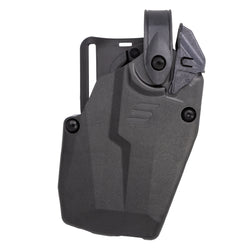The question among would-be concealed carriers was once “Can I carry a firearm for self-defense?” Thanks to hard-working gun rights advocates and a landmark court case, that question has changed to “Do I need a license to carry a firearm for self-defense?”
The answer depends upon the state in which you live. We all live in so-called “Shall Issue” states, but do you live in a “Constitutional Carry” state? There’s a big difference between the two and even states in the same category can vary from one to another. So, let’s break down this sometimes-confusing topic and try to provide some clarity.

Shall Issue vs. May Issue
The Supreme Court’s 2022 Bruen Decision required all 50 states to adopt Shall Issue carry regimes. Before that landmark case, many states were classified as May Issue. May Issue meant that citizens could apply for a carry license, but the state was not obligated to approve the application, even if the applicant had a clean record and was not prohibited from owning a firearm.
Most May Issue states required a special reason for needing a license, and general self-defense was not good enough. You needed to be rich, famous, politically connected, or a combination of those to get a license. May Issue was a deliberate method of restricting the right to carry as much as possible.
Shall Issue means that the state must license any applicant who is not otherwise prohibited from owning a firearm. Most Shall Issue states require training, which varies by state. But the state cannot deny the application once the training is completed, and the license fee paid.
Bruen required the May Issue states to become Shall Issue states, but most have thrown up as many roadblocks as possible. These roadblocks usually take the form of personal interviews with local judges who might dedicate an hour per week to the process. Or requiring 16 to 18 hours of training coupled with range time and extra fees.
New York tried to require access to three years of the applicant’s social media posts and a subjective judgment of the applicant’s “moral character.” Those have since been shot down on Constitutional grounds. But the former May Issue states are still dragging their feet.
Many of these extra requirements are facing court challenges.

Constitutional Carry
All Constitutional Carry states are also Shall Issue states, but not all Shall Issue states are Constitutional Carry states. Constitutional Carry essentially means that the Second Amendment itself is your carry permit. If you can legally own a firearm, then you can carry it.
This regime is sometimes called “Permitless Carry.” There are, however, some nuances to Constitutional Carry. There may be local or state laws prohibiting carry in some areas, like schools. You’ll have to be familiar with your state and locality.
Reciprocity with other states will also come into play. Since you don’t have a license, you will only be able to carry in other Constitutional Carry states. But 28 states now have Constitutional Carry, with a 29th, Louisiana, set to implement the regime on July 4, 2024. But Constitutional Carry states also offer licenses, which provide reciprocity with many Shall Issue states. More on reciprocity in a moment.

Constitutional Carry states offer the best of both worlds. You can carry a firearm without a license if you want. Or you can get a license. You choose what works best for you.
Constitutional Carry makes gun control advocates wring their hands about their state becoming the “Wild West.” They oppose it with dire warnings of blood in the streets, but it’s never happened. Not even once. In fact, crime tends to fall slightly when Constitutional Carry regimes are adopted.
For what it’s worth, those same people cried wolf when May Issue states became Shall Issue states. That never happened either. Citizens who carry concealed are among the most responsible people in the nation. Their criminal offense rate is actually lower than that of police officers.
A Word About Carry Reciprocity
Reciprocity refers to how the states recognize and accept each other’s carry permits. Reciprocity is determined by each state and is not affected by Bruen, at least not yet. Most gun-friendly or gun-neutral states recognize and honor one another’s permits. The May Issue holdouts rarely recognize other states’ permits since they don’t even want their own citizens to carry guns.
Constitutional Carry states don’t require any kind of reciprocity agreement. You’re legal no matter where you live, assuming you can own a firearm. But if you rely on Constitutional Carry, you can only carry in other Constitutional Carry states.
If you want to carry in a non-Constitutional Carry state, you’ll need a permit of some kind. You can get one from your own state, assuming the state you’re traveling to has a reciprocity agreement or an out-of-state permit for the state you’re visiting. I hope that makes sense. Basically, a permit can be beneficial even if your state has Constitutional Carry.
Reciprocity agreements vary, but reciprocity maps are easily found online. Just make certain you know the laws of other states you visit. Don’t assume your permit is valid elsewhere.
Remember that each state’s laws are different and do your homework before traveling. A good place to start is finding out whether a particular state has a preemption law. If so, then localities cannot enact stricter gun control than the state itself. If not, there’s a good chance that some cities and counties will have stricter laws. Know what you’re getting into.

The Current State of Concealed Carry
Carrying a firearm for self-defense is easier now than since the time before lawyers got involved in such things. Well over half the states are now Constitutional Carry, though that trend will now slow considerably. I can only see one or two more states that may go that way in the future. But that’s the nature of federalism and our republic.
National Reciprocity bills have come up a few times in Congress, but they’ve never had enough support to pass. I think the current political climate precludes national reciprocity for the foreseeable future. But widespread Constitutional Carry has eased the reciprocity burden considerably.
The Bruen Decision eliminated May Issue carry regimes and gun rights organizations are successfully applying it to the more onerous permitting requirements in states like Maryland, New York, and New Jersey. As Bruen beats back those restrictions, carrying becomes easier in historically difficult states, if only incrementally thanks to certain stripes of politicians.
Things are improving. We just need to be aware of how things work where we are and conduct ourselves accordingly. Carry responsibly, y’all.









